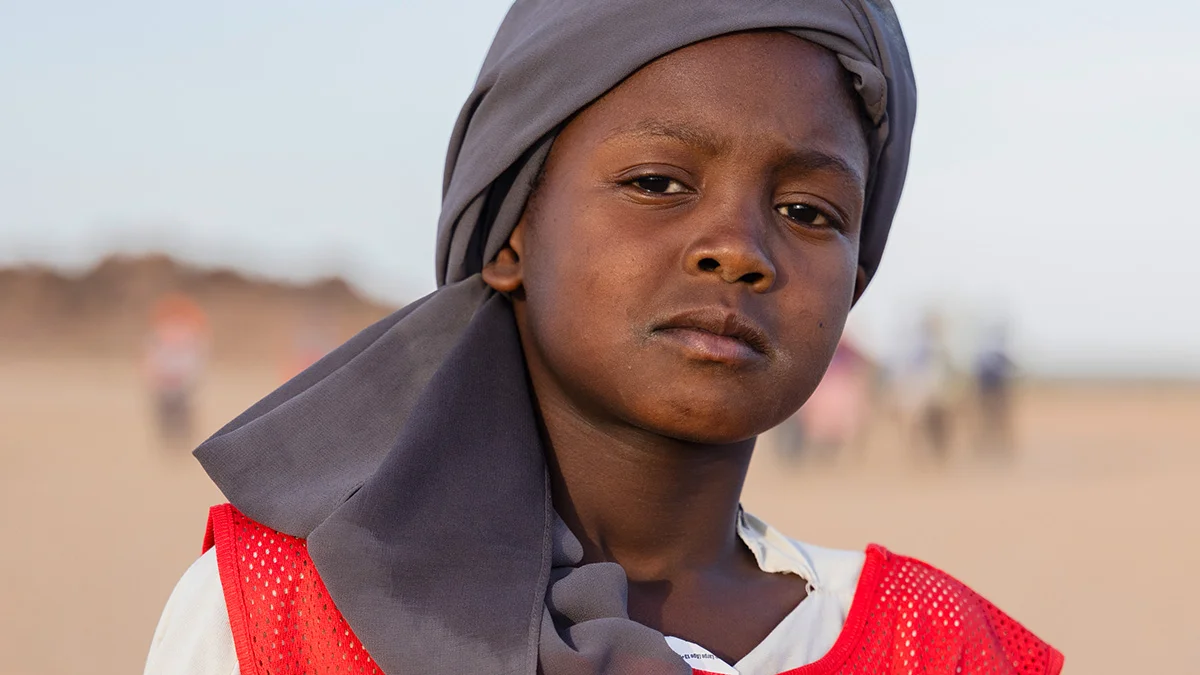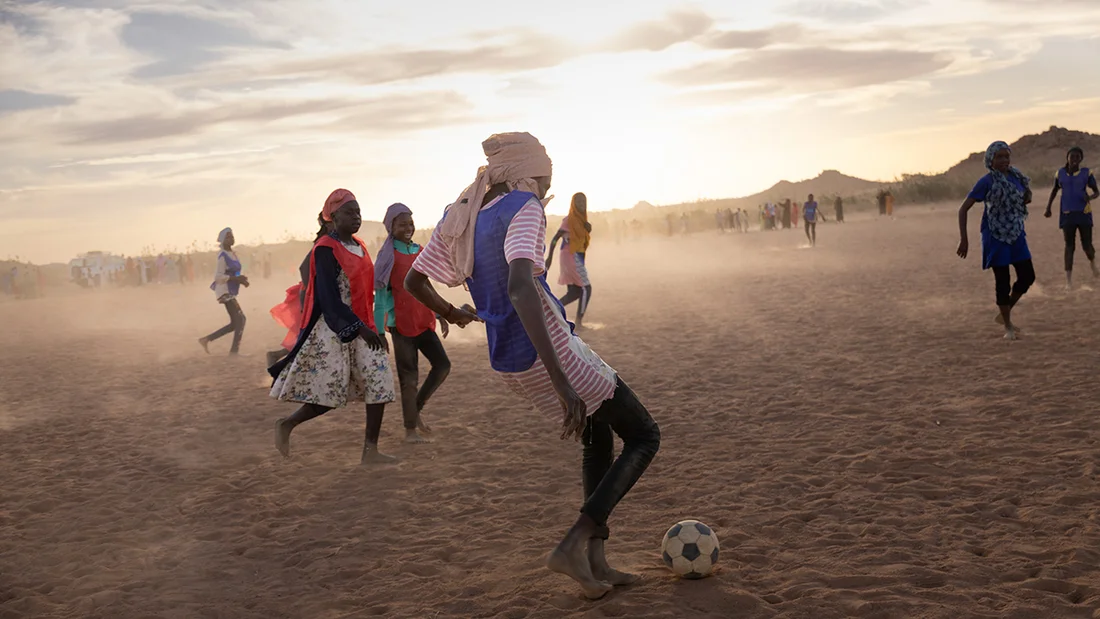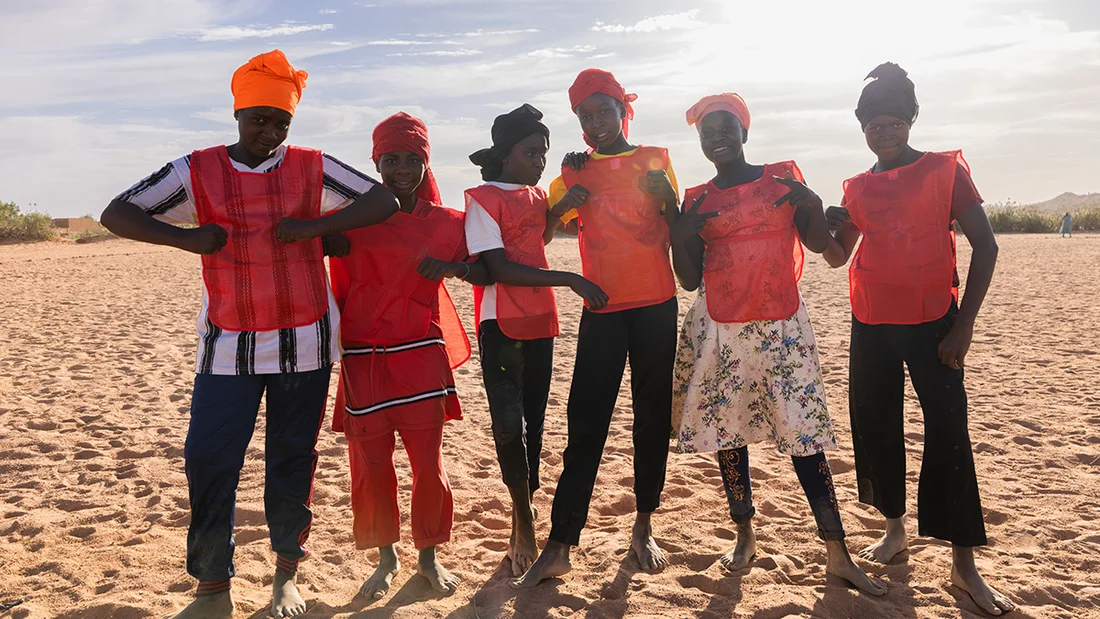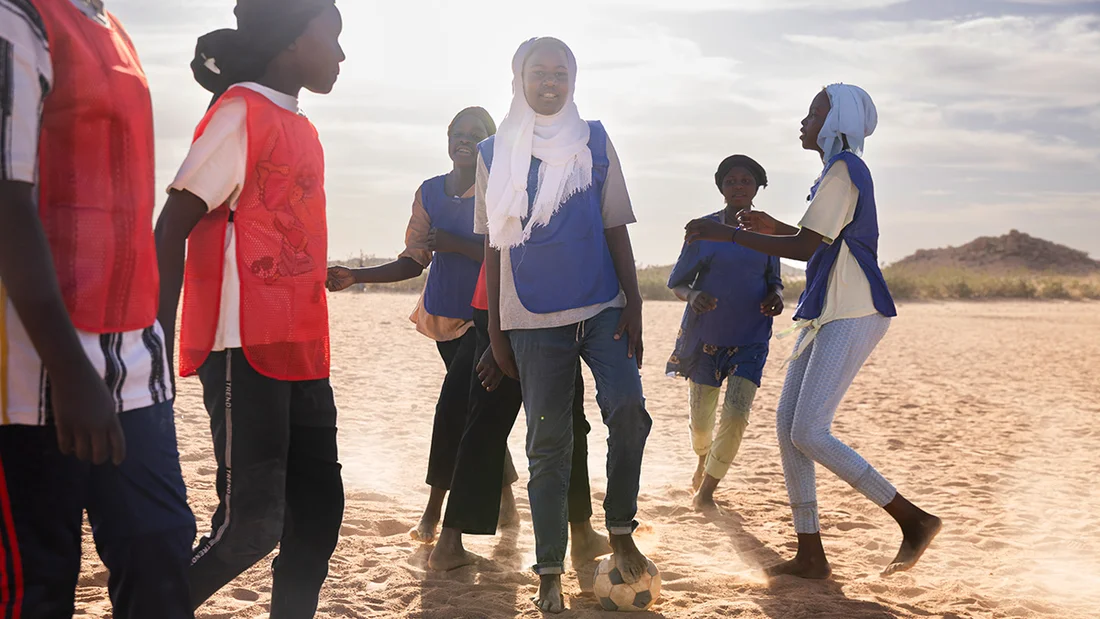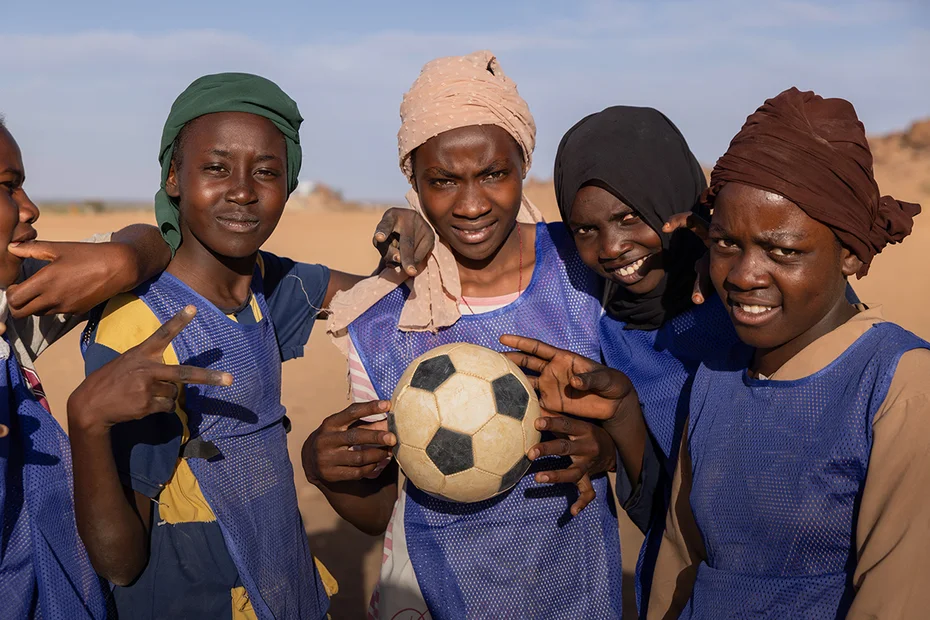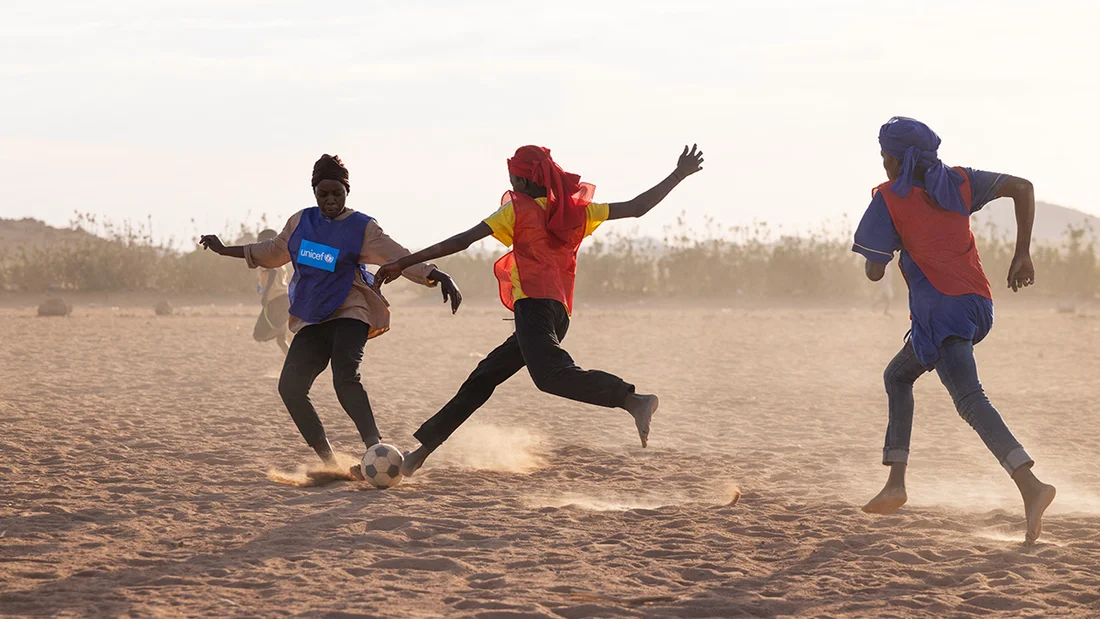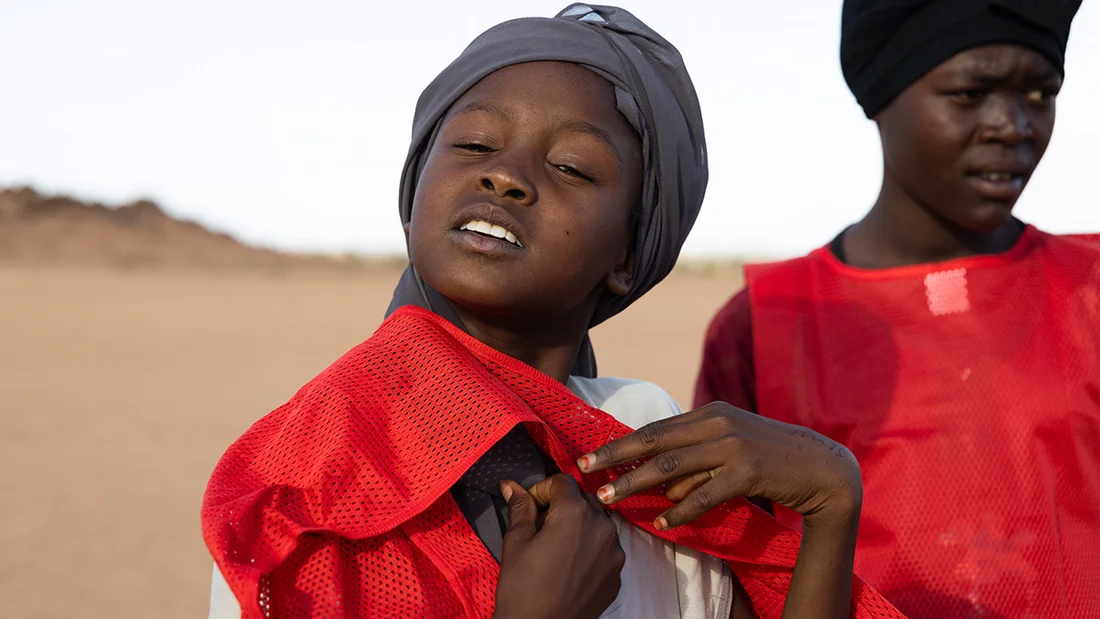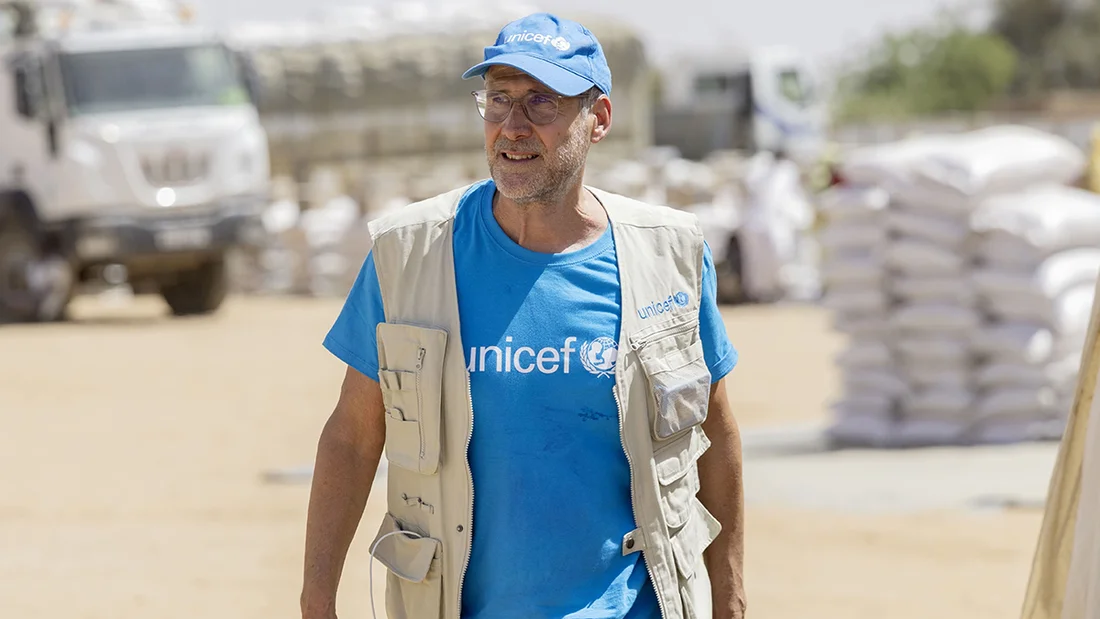Football projects in refugee camps are part of a psychosocial child protection programme run by UNICEF and its partner organisations. In an interview, 10-year-old Soukra Saboun shares how football has become part of her life as a Sudanese refugee in a camp in Chad. Jürg Keim, spokesperson for UNICEF Switzerland and Liechtenstein, visited the camp and reports from the ground.
In early May 2025, I visited a camp for Sudanese refugees in Chad as a representative of UNICEF Switzerland and Liechtenstein. While there, I spoke with a ten-year-old girl named Soukra Saboun. For the past two years, Soukra and her family have been living in one of two refugee camps in Farchana, just under fifty kilometers from the border with Sudan. Soukra is one of 24 girls in the camp who play football every Thursday afternoon.
“I like to practice, because it gives my body a workout,” Soukra told me. “When I’m playing, I forget that I don’t live at home anymore. Football keeps me from being sad all the time. And when I’m playing, I think that there can be nice things again.” Soukra especially likes that practice allows her to run, yell and laugh.
She’s not afraid of rough-and-tumble with the other players. “I’m strong,” she says confidently. Soukra started playing football after her school principal came up with the idea of forming a girls’ team. In refugee camps like Soukra’s, psychosocial support programs frequently include football. The program offers a way to help the girls build self-confidence and team spirit and give them back a piece of their childhood.
The football field is a place where the children can be carefree, forgetting the worry and fear that has accompanied them since they fled their homes. Here they can simply be children. At the same time, football builds their self-confidence. The pride they feel when they play gives them new energy. Many of the girls see their team as a kind of family. It gives them the feeling that they are not alone; they help each other achieve their goals, and not just in terms of scoring points. There are healing powers in the feelings of camaraderie and belonging that come with team spirit.
The football field is where the girls can experience success and find joy – and get back a piece of their childhood. It can also be the first step toward a better future. These football projects are part of a comprehensive child protection program launched by UNICEF and one of its partner organizations. “Child friendly spaces” offer children safe places to play, learn, do handicrafts and receive psychosocial support. Athletic activities like football, volleyball and karate give children the opportunity to work off stress and experience a sense of normality. These programs are especially important for girls, as they build confidence and social ties. The girls also learn how to resolve conflicts through play and to speak up when they need help. In a place surrounded by violence, uncertainty and loss, football symbolizes strength and hope for these girls.
For Soukra and many others, these activities have become much more than hobbies. These programs help children like Soukra find resilience, rebuild their lives and dream of a better future. “There are 24 of us and we have two teams. I play defense in the second team.” For Soukra, that means defending her team’s goal. “I feel brave when I play. I can shout and show what I can do, and I’ve learned that I’m important. We cheer each other on and talk about how to treat each other with respect. We play and laugh together. But we are also there for each other when one of us is sad. We are like family.”
I asked Soukra if she ever talks about the past. “Yes,” she said, suddenly lowering her voice. “We came to Chad in my uncle’s car. I lived in Al-Junaynah, a city in the Darfur region, just an hour from Adre across the border in Chad. My uncle brought us all to safety because it was suddenly dangerous and soldiers came into the city. We were in Adre for a couple of weeks, then we were brought to this camp.”
Soukra feels more at ease in the new camp in Farchana. “It has a school, it has water, and we get money to buy the things we need. It’s much better than Adre, which was very loud. There were many people there and we barely had enough room. But we barely have enough here either. Sometimes there is not enough food and water for everyone.”
She often thinks back to the time before the war, when she had everything she needed for a happy life: a house and enough to eat. Her parents were farmers and sold their produce at the market. Most of all, she misses playing with her friends in front of her house. Fortunately, her best friend from school is also in the camp. “We spend lots of time together. But I’d like to go back when the war is over. I would like my old life back,” says Soukra at the end of our conversation.
I’d always viewed football as nothing more than a sport. But children like Soukra have shown me that it can be much more – it is a place where children find strength and resilience.
